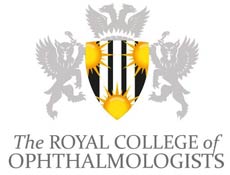What is an oculoplastic surgeon?
An Oculoplastic surgeon is a doctor who has trained as an ophthalmologist (eye doctor) before subspecialising in surgery around the eyes, eyelids, brows and midface. The eyes provide our most important sense, vision so it is essential that any surgery in this area is undertaken with the utmost care in order to protect the eyesight.
What is medical grade skin care?
Medical or pharmaceutical grade skin care is skin care that changes the structure and function or the skin (Food and Drug Administration, FDA definition). It can only be prescribed by a medical professional and is not available ‘over the counter’. It contains ‘active’ ingredients, which are designed to work in all the skin layers to protect and prevent damage as well as improve skin health and function.
What is multi-mini Botox (M-M BTX)?
The relatively new technique of multi-mini Botox (M-M BTX) aims to achieve a more natural result with a reduction in dynamic wrinkles without impairment of expression by using multiple smaller doses of botulinum toxin (Botox) in a more tailored fashion. This avoids the frozen look often seen in media images of celebrities. A series of smaller dose treatments are required to achieve an optimal result.
What are the latest innovations in cosmetic eye treatments?
Over the last two decades or so, there has been a paradigm shift from a 2 dimensional to a 3 dimensional approach in the way we approach our understanding of ageing and the face. We are moving away from predominantly surgical interventions with an increased focus on restorative techniques aimed at treating the root causes of ageing: primarily loss of facial structural volume and skin health. Surgery still has an important role to play however in addressing excessive skin laxity, eye bags and eyelid hooding, for example.
Pioneering innovation has been achieved through the use of filler agents with high water binding capacity, which compensate for age-related facial soft tissue volume loss and also activate physiological regenerative processes slowing down ageing.
What is the key trend in cosmetic facial care for 2025?
As for the previous few years, the key trend in cosmetic facial care for 2025 remains the skin. Skin health is at the forefront of aesthetic medicine. When the skin is healthier and it glows, patients feel happier and start to get more compliments from friends and family about how well they look. Aesthetics is all about wellness.
As we have seen from the new celebration of no-make-up filters and make-up free selfies posted on social media sites, celebrities such as Cameron Diaz are tiring of the made-up look and opting for a more natural, radiant and healthy look. This is one of the key trends of 2024.
A number of treatments may be recommended in order to achieve a refreshed look:
- Prescribed medical-grade skin care with active ingredients, which change the structure and function of the skin, rather than so-called ‘pampering’ over-the-counter skin care
- Skin boosters (hyaluronic acid injections), which are used to treat acne scarring, ageing skin, dull tired skin. They stimulate collagen and elastin production in the skin, improving skin hydration and glow
- Anti-wrinkle treatments (Botox injections)
- Dermal fillers to restore volume to the face
- Chemical peels to improve the radiance and smoothness of the skin and reduce uneven pigmentation
- Non-surgical blepharoplasty (see below)
- Surgery: blepharoplasty (for eyelid bags or hooding), saggy eyelid surgery, eyelid lift (for droopy eyelid repair), eyebrow lift
The media often show images of celebrities with very noticeable cosmetic eye surgery. What advice can you give for achieving a natural look?
Any intervention needs to be in harmony with the rest of the face in order to achieve a natural, refreshed and radiant look. This requires a gentle multi-factorial approach starting with getting the basics right. Often the first step is optimising skin health. Through a careful medically-directed history, I assess the skin health and recommend an individualised skin care regimen. Further interventions such as anti-wrinkle injections, skin boosters, dermal fillers, chemical peels and surgery may also be recommended, according to the needs and wishes of the patient.
For the treatment of dynamic wrinkles, I favour the relatively newer technique of multi-mini Botox (M-M BTX). This aims to achieve a more natural result with a reduction in wrinkles without impairment of expression by using multiple smaller doses of botulinum toxin (Botox) in a more tailored fashion.
A recently publicised feature of celebrities with noticeable cosmetic work is the so-called ‘pillow-face’ caused by the use of higher volumes of dermal filler causing a puffy face. In order to avoid this ‘done’ look, I advocate a ‘less is more’ strategy and advise small volumes of dermal fillers in a gentle step-wise approach, which usually involves more than one treatment session until the desired look is achieved.
Privacy – how can I be sure that my privacy will be protected?
Miss Mellington and her team have a duty to ensure that your health records are maintained appropriately and that your confidentiality is protected.
We aim to provide you with a professional discreet and confidential service.
What reasons do patients give for wanting to have a cosmetic eye procedure?
One of the main reasons that patients undergo a cosmetic eye procedure is that their appearance does not reflect how they feel inside. People are trying to reflect how well they feel about themselves. When patients’ self-assessment of their appearance is higher, their self-esteem is higher.
Ageing changes such as poor skin tone, uneven pigmentation, lax, baggy skin, are more apparent in the face than in any other part of the body and may give out the wrong impression of feeling tired, angry, stressed or rundown. Patients are often told by colleagues, friends and family that they look tired and this is not the impression they wish to give. Patients want to project wellness, vitality and health. The ageing face often represents the opposite. So instead of wanting to look younger per se, patients often say that they want to look refreshed and ‘good for their age’. They do not want a ‘done’ look.
Clinical interventions to counteract the visible signs of ageing, which cannot be addressed by non-medical grade skin care and make-up, are becoming increasingly popular.
What if I have a complaint?
Miss Mellington aims to offer you the highest quality care. If however you do have cause for complaint, please do get in touch.
Click here to make an enquiry or report a concern
What is the best part of your job?
I truly enjoy what I do and I get great pleasure from working with patients to achieve their goals, enabling them to project themselves in the best light, in a way that reflects how they are feeling on the inside: happy and well. I enjoy the challenge of improving, reconstructing and rejuvenating this complex area.
The best part of the job is being involved in the patient journey from the initial consultation and the evaluation of patients concerns and expectations, to the careful planning of treatments, and the final visit with happy satisfied patients telling me that their friends and relatives have complimented them on how well they look.
Choosing to have surgery is a big decision. What is your advice for patients selecting a surgeon or hospital for surgery?
My advice would be to choose a consultant specifically trained in surgery around the eyes. Oculoplastic surgeons are trained Ophthalmologists (eye doctors) who have had further advanced subspecialty training in plastic and reconstructive surgery in this area. They recognise the importance of protecting the eyes at all times so that surgery does not negatively affect vision and eye health.
As a result of the increasing demand for aesthetic (cosmetic) procedures in the UK, a number of non-medically trained practitioners now offer cosmetic treatments. The face and eyes are incredibly important in terms of appearance and vision, so it is imperative from a patient safety point of view that only doctors who have in-depth training in the anatomy and function of the eyes and face undertake these treatments.
Good communication and trust lie at the heart of a good doctor-patient relationship. Your surgeon should undertake an initial consultation with a clinical history to assess your key concerns and relevant medical background, and discuss your expectations to ensure that they are realistic. This should be followed by examination, diagnosis and then a discussion of all treatment options including their risks and benefits, so that together you may decide on the best treatment strategy for you. Your surgeon should only undertake procedures if he/she feels that there is a good chance of meeting your expectations.







